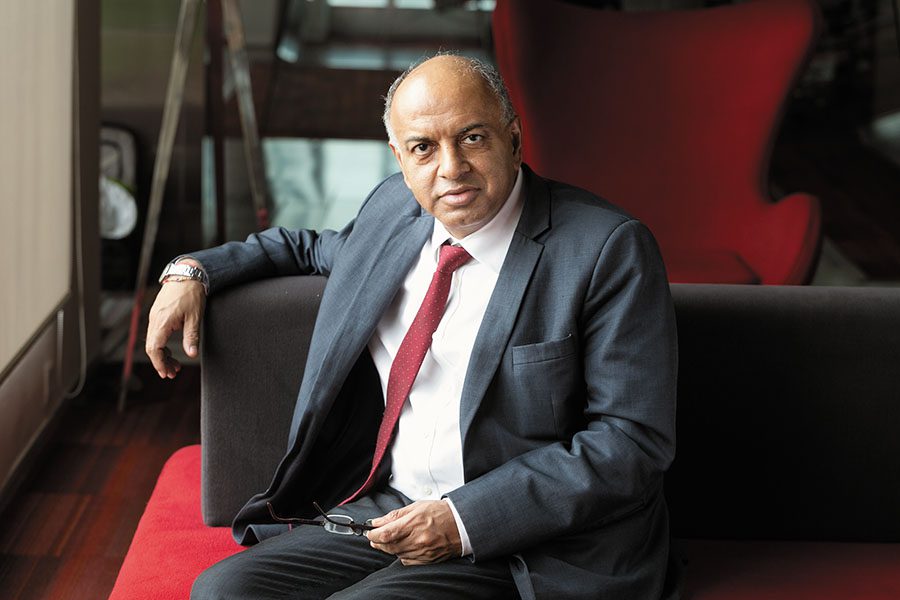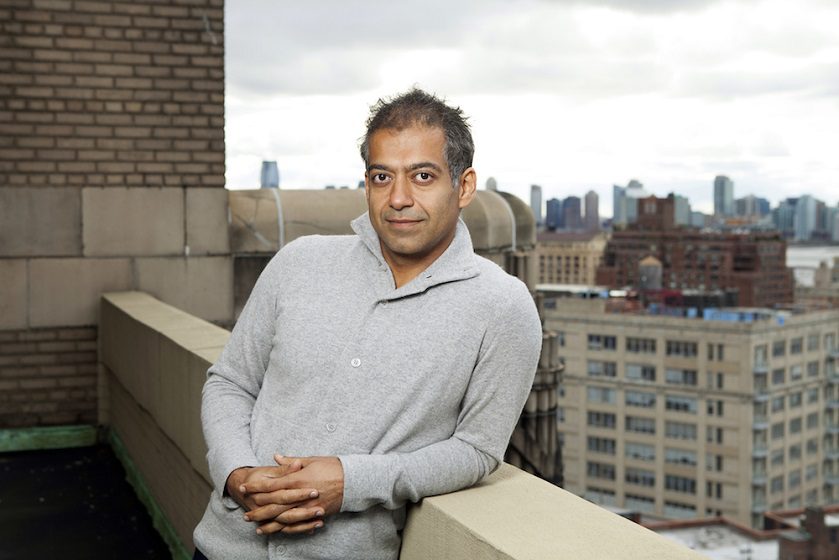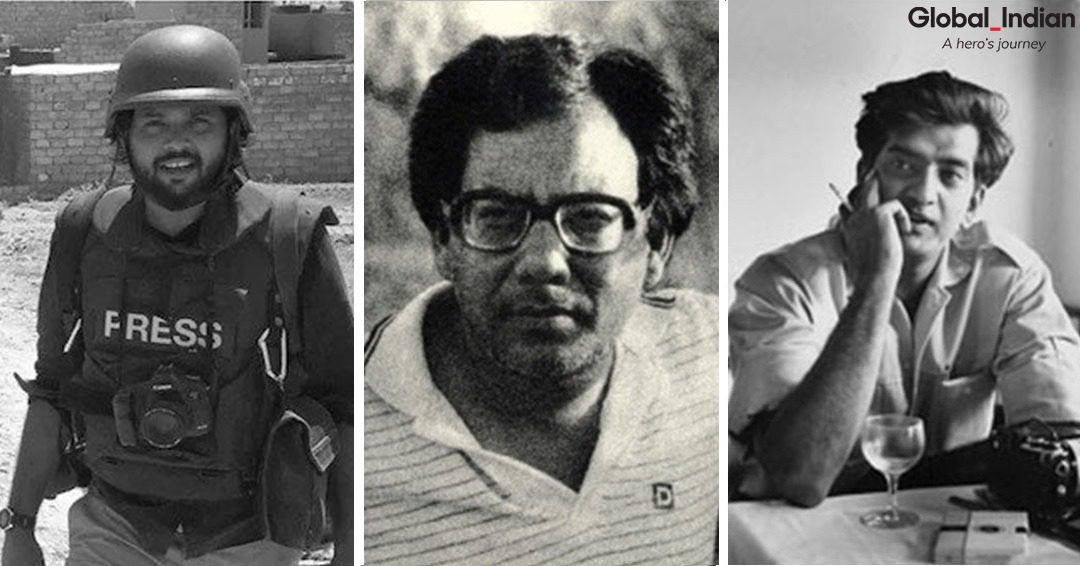(August 20, 2021) Back in 2010 when Deepinder Goyal was looking to set up Zomato there was one man who believed in him and his vision. That man was Info Edge’s Sanjeev Bikhchandani who wrote Zomato’s first cheque for ₹4.7 crore; he was the company’s sole investor in the first four funding rounds. Zomato’s recent public listing catapulted the value of Bikhchandani’s stake to ₹15,000 crore: testimony of his belief and vision in India’s startup ecosystem. He has mentored and backed several businesses such as PolicyBazaar, Bijnis, DotPe, and MedCords among others apart from running several successful enterprises himself like Naukri.com and Ashoka University.
Mighty oaks from little acorns grow pic.twitter.com/aoGzpSXERM
— Sanjeev Bikhchandani (@sbikh) August 4, 2021
In an interview with Money Control after Zomato’s IPO, Bikhchandani said,
“It is the ultimate validation and public proof of what we knew and believed all along – invest smartly in startups and over a decade or so you will strike gold. These startups will go on to become giants and will create new industries, categories and business models. They will create jobs and deliver growth. They will power the industries they serve in.”
Humble beginnings
Born in Delhi to a government doctor father and a homemaker mother, Bikhchandani studied at St Columba’s School and passed out in 1981. He then graduated from St Stephen’s College in 1984 with a degree in Economics before working with Lintas as an account executive. Three years later, he quit to do his MBA from IIM-Ahmedabad in 1989.
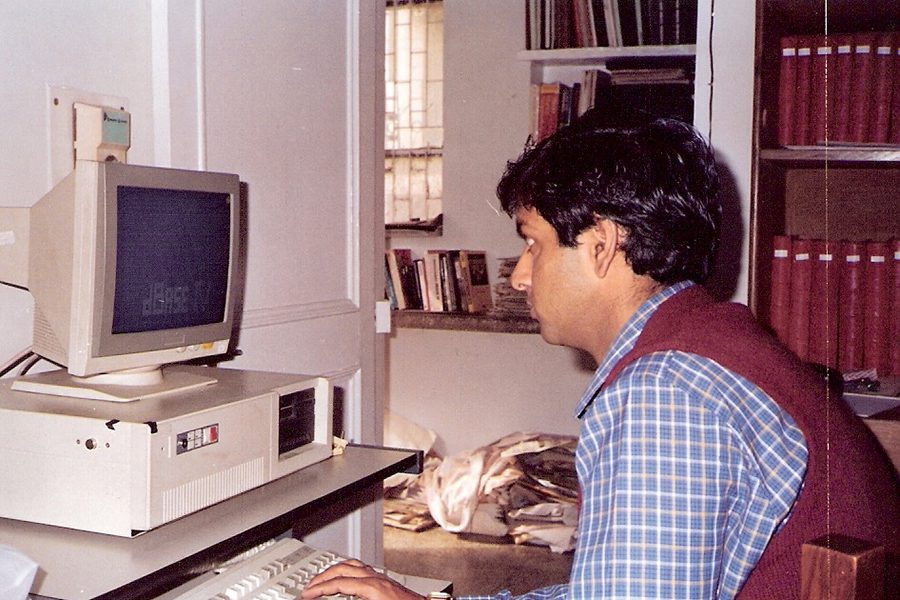
Sanjeev Bikchandani in his early days as an entrepreneur
Following this, Bikhchandani got a job with Hindustan Milkfood Manufacturers (now known as GlaxoSmithKline Consumer Healthcare India) as a product executive. However, his heart was not in it. Bikhchandani knew that it was entrepreneurship that was his true calling and 18 months into the job he quit and moved into the servant quarters above the garage in his father’s house to branch out by himself. At age 27, he began doing salary surveys and in 1991 as the winds of economic liberalization swept the country, Bikhchandani and his partner Kapil Varma set up two companies: Indmark (selling searches on a trademark database to pharma companies) and Info Edge (salary surveys and consulting). Since the two barely made enough money to cover costs, they didn’t take a salary. In order to pay his father a rent of ₹800, Bikhchandani began to teach weekend classes at management schools where he’d earn about ₹2,500 per month.
Entrepreneurial journey
In 1993, the two parted ways and Bikhchandani formally incorporated Info Edge India Pvt Ltd in 1995. In an interview with Forbes, the 58-year-old said,
“Successful businesses are built on deep customer insights.”
It was this insight that led him to his next venture Naukri.com in 1997. According to reports, when he was working at HMM he found most of his colleagues reading the back pages of Business India, instead of the articles. Reason: the back pages had job advertisements, a high interest area for professionals. Sensing the potential that lay here, he set up Naukri.com, now a hugely successful job discovery and employment platform. By 2005, it had grown to become India’s largest web-based employment site. Soon sites like 99acres.com, Jeevansathi.com and Shiksha.com followed.
Incidentally, in the 1990s getting internet was an expensive affair and setting up a website tougher still. Back then, there were only 14,000 internet accounts in India. Bikhchandani rented a server in the US for $25 a month for Naukri. A gamble that paid off and how.
From entrepreneur to investor
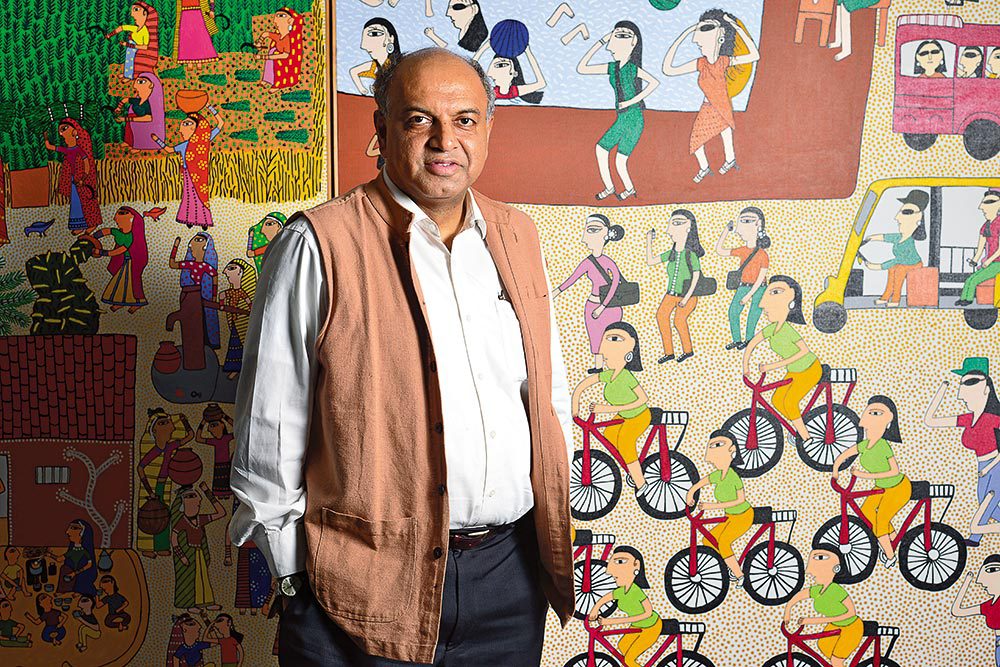
Sanjeev Bikchandani
In 2006, Info Edge became one of the first internet ventures to be listed on the BSE and NSE. By 2008, Bikhchandani invested in his first startup, PolicyBazaar, through Info Edge. His struggles to find funding as an entrepreneur himself, probably influenced his investment decisions. With an eye for spotting great startups, Bikchandani became a messiah for India’s internet startups.
An astute investor, Bikhchandani has to his credit successful unicorns like PolicybBazaar and Zomato. Some of the others he’s invested in are Slurrp Farm, DotPe, Bijnis, MedCords, Gramophone, and Shipsy. According to an interview in Forbes, he doesn’t believe in chasing internal rate of returns or looking at short term goals. He believes in backing good people and doesn’t mind waiting a decade to see returns: like he did with Zomato.
In 2008, he received the Ernst and Young Entrepreneur of the Year Award. In 2019, he debuted on the Forbes’ Worlds’ Billionaires List with a net worth of $1 billion. As of August this year, Forbes estimated his net worth to be $3.1 billion.
Giving Back
Bikhchandani has also been actively giving back to society over the years. In 2014, he co-founded Ashoka University, a non-profit educational institution in Haryana that focuses on liberal arts. He is also on the board of Chintan, an NGO that works on urban waste management and is the founding donor of The 1947 Partition Archive, which captures the stories of Partition survivors. In the past year and a half, Bikhchandani has also been actively contributing towards and working in the Covid-19 relief space.
His journey from a struggling entrepreneur who didn’t take home a salary to turning investor and mentor to fledgling Indian startups and now giving back to society shows that life does come a full circle. And Bikchandani is a man you want on your side if you have the conviction to take your startup dreams to new heights.

